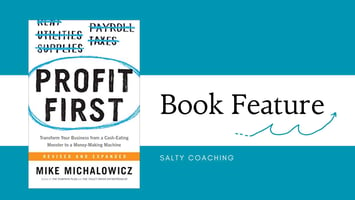Book Feature | Switch. Driving Successful Change in Your Business
“A good change leader never thinks, “Why are these people acting so badly? They must be bad people.” A change leader thinks, “How can I set up a situation that brings out the good in these people?”
– Chip Heath
Switch: How to Change Things When Change is Hard, by Chip Heath and Dan Heath, is a powerful exploration of the psychology of change – something vital for business owners or managers of people anywhere.
The book delves into why change is often so difficult and provides actionable strategies to overcome resistance. Using engaging stories and research-based insights, the Heath brothers present a framework that can help individuals and organisations create lasting change, making it highly relevant for business owners looking to drive transformation in their teams or companies.
As always, this is our own summary and some key points to take away from the book, but we highly recommend reading the book for yourself to help you absorb and really understand the principles and how to apply them in your own business.
The Core Concept: The Rider, The Elephant, and The Path
The main premise of Switch is built around a simple, yet profound analogy: the Rider, the Elephant, and the Path. This model represents the three elements of human behaviour that must be addressed to facilitate change:
- The Rider (Rational Mind): This represents our logical side—the part that plans, analyses, and makes decisions based on reason. However, the Rider can often get stuck in over-analysis, which can impede progress.
- The Elephant (Emotional Mind): The Elephant symbolizes our emotions, impulses, and desires. It’s powerful and driven by feelings. While the Rider might want to change, the Elephant needs to be motivated to move, as it ultimately controls the direction.
- The Path (Environment): The Path represents the environment and circumstances that shape behaviour. Even if the Rider and Elephant are aligned, an unclear or challenging path can derail change efforts.
“And that’s the first surprise about change: What looks like a people problem is often a situation problem.”
– Chip Heath
Why Switch is Applicable to Business Owners
The Heath brothers outline a three-part strategy to create change which is vital to any business owner who needs to make change successfully in their business. You want your people on board, motivated and leading the change from the inside!
Why read this book? The approach helps you learn principles of:
- Leading Organisational Change: Business owners often face resistance when trying to implement new processes, strategies, or cultural shifts. Switch provides a practical approach to overcoming this resistance by aligning the rational and emotional sides of the team.
- Employee Motivation: Motivating employees isn’t just about setting targets. By understanding the needs of the Rider and the Elephant, business owners can better inspire their teams, creating a more engaged and motivated workforce.
- Customer Behaviour: Understanding why people resist change can also help business owners tailor their marketing, customer service, and product development strategies to better meet customer needs and drive adoption.
- Personal Growth and Adaptation: Business owners often need to pivot and adapt quickly. The Switch framework helps them manage their own change processes by making small, impactful adjustments that keep their personal Elephant and Rider aligned.
- Creating a Positive Work Environment: Shaping the Path by tweaking the environment can lead to improved productivity, collaboration, and morale, ultimately driving the business forward.
In Summary
Switch is an essential read for business owners who want to drive change but face the inevitable challenges that come with it.
By understanding and addressing the Rider, the Elephant, and the Path, business owners can create a more dynamic, adaptive, and successful organisation. The insights from this book provide a roadmap for not just managing change but mastering it—turning obstacles into opportunities for growth and innovation.
NEED SUPPORT WITH A BIG CHANGE?
Try Business Coaching



